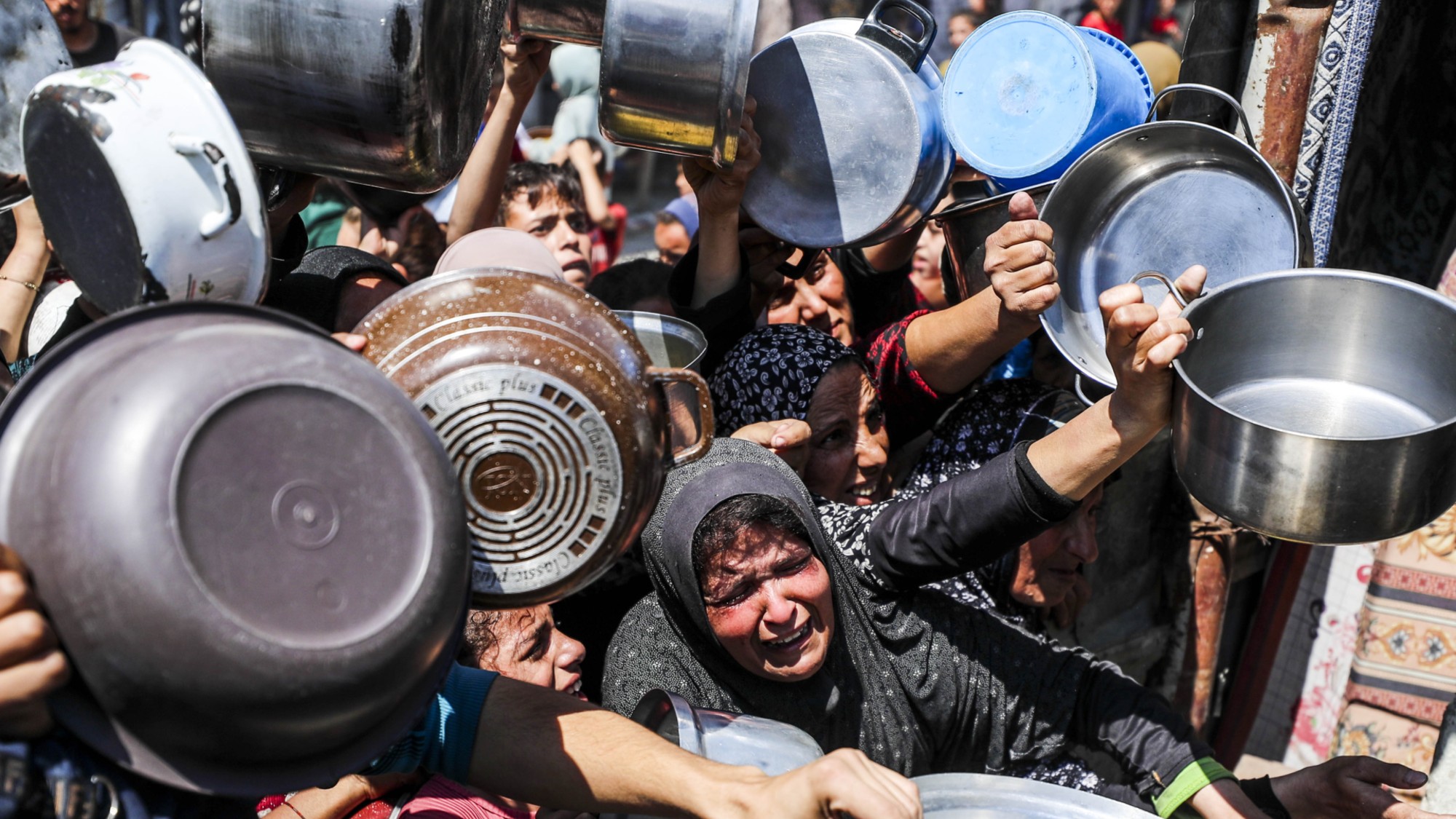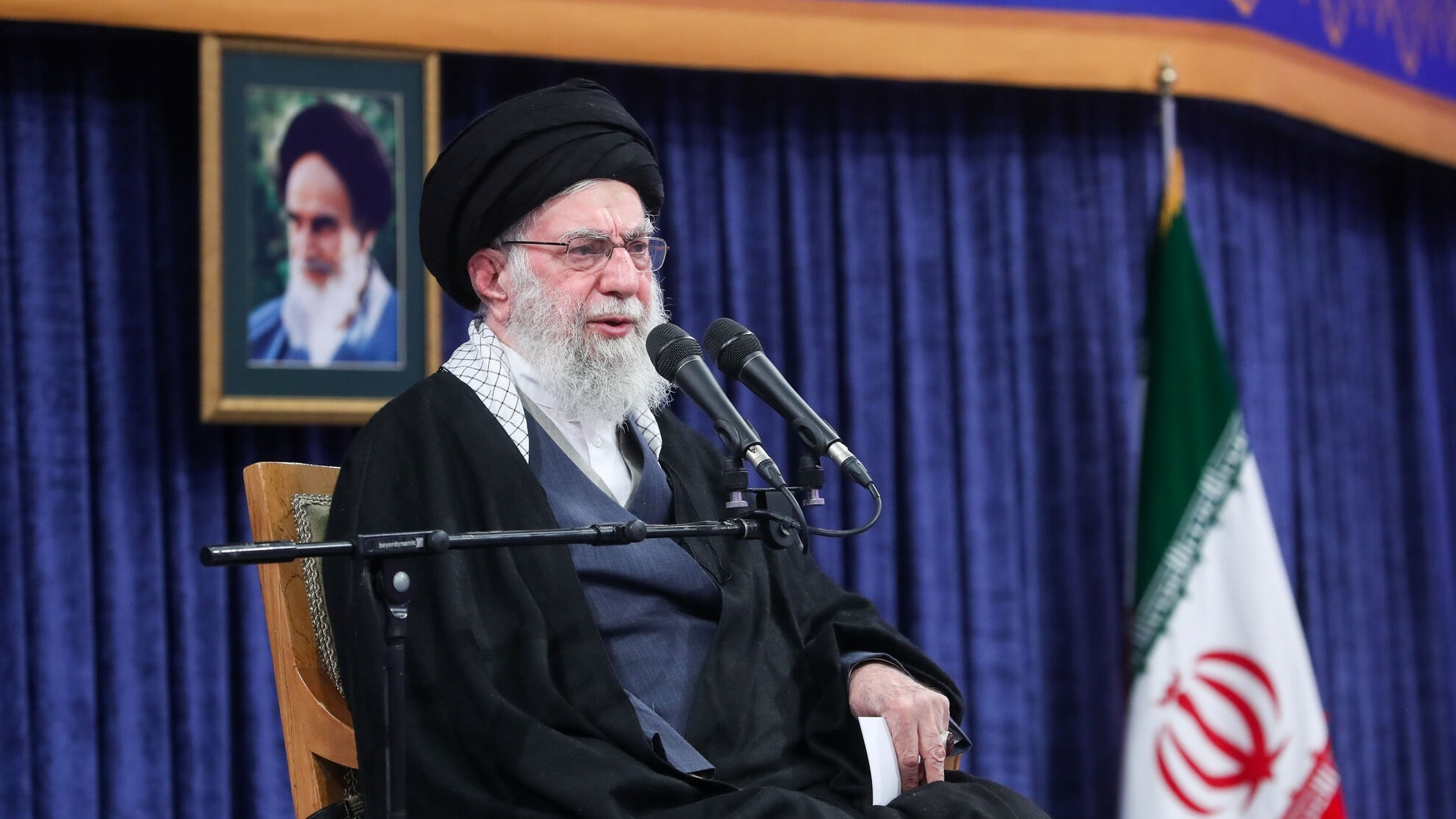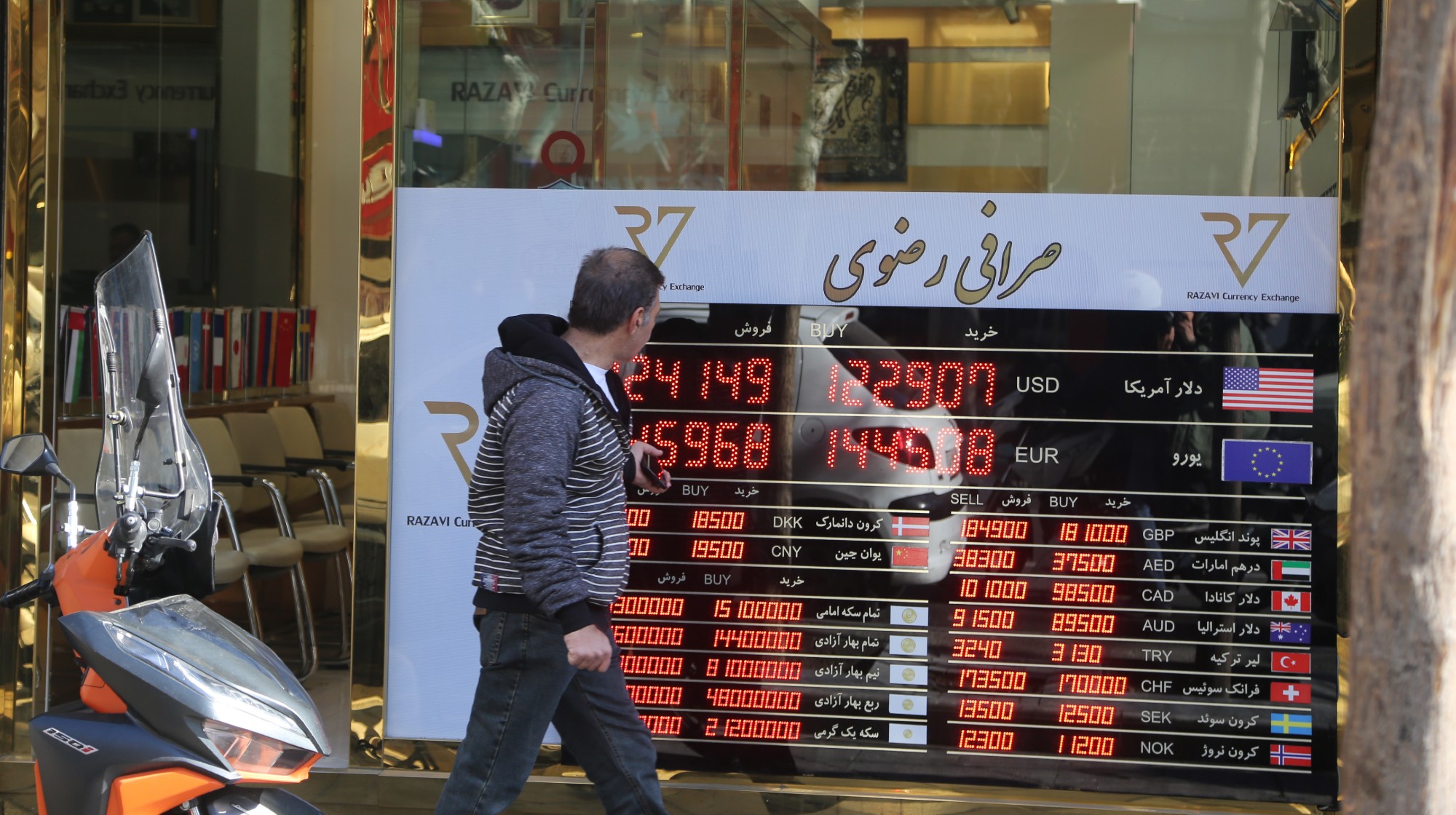Can the world stop Israel from starving Gaza?
Total blockade on food and aid enters its third month, and Israel is accused of 'weaponising starvation'

A free daily email with the biggest news stories of the day – and the best features from TheWeek.com
You are now subscribed
Your newsletter sign-up was successful
More than 3,500 children in Gaza "face imminent death by starvation" after more than two months of total blockade by Israel, said Gaza's Hamas-run Government Media Office.
The Israeli government cut off the enclave on 2 March as the ceasefire with Hamas began to disintegrate. It halted all supplies of humanitarian aid, including food, water and medicines, in a move it said was designed to pressure Hamas into releasing the remaining Israeli hostages.
On 25 April, the United Nations World Food Program said it had depleted all its food stocks for families in Gaza. International organisations are accusing Israel of weaponising starvation and humanitarian aid: a war crime.
The Week
Escape your echo chamber. Get the facts behind the news, plus analysis from multiple perspectives.

Sign up for The Week's Free Newsletters
From our morning news briefing to a weekly Good News Newsletter, get the best of The Week delivered directly to your inbox.
From our morning news briefing to a weekly Good News Newsletter, get the best of The Week delivered directly to your inbox.
What did the commentators say?
"A full-blown humanitarian emergency in Gaza is no longer looming," said Sean Carroll, president of the non-profit group American Near East Refugee Aid, in The New York Times. "It is here, and it is catastrophic."
Two million Palestinians, nearly half of them children, are "surviving on a single meal every two or three days", and signs of "prolonged starvation are becoming more frequent and alarming". This is "the moment of moral reckoning". Will the world be "complicit in Gaza's collapse"?
Israel's serial blockades have already become a "major test for international law", said Boyd van Dijk, Oxford University's Martin Fellow and a Geneva Conventions expert, in Foreign Affairs. In November, the International Criminal Court issued arrest warrants for Prime Minister Benjamin Netanyahu and Yoav Gallant, Israel's former defence minister, alleging a "rarely invoked" war crime: "orchestrating a criminal starvation policy" against Gazans. And yet, despite its "long and devastating history" in conflict, intentional starvation of civilians is "notoriously difficult to prove".
Last week the United Nations' top court, the International Court of Justice, separately began holding hearings to determine whether Israel had a legal duty to allow aid into Gaza, and to lift its ban on the UN's Palestinian aid agency, UNRWA. The "strong legal consensus" is that Israel has "an absolute duty under the Geneva Conventions" to allow food in, said The Guardian. After all, "withholding food kills, just as bombs do".
A free daily email with the biggest news stories of the day – and the best features from TheWeek.com
But Israel has refused to appear before the ICJ court in The Hague. Gideon Sa'ar, Israel's foreign minister, described the proceedings as "shameful". Donald Trump claimed last week that he had pushed Netanyahu to allow aid in – but the US has also told the ICJ that Israel's security needs "override its obligation to do so".
When Israel resorted to "using starvation as a weapon, there were few consequences and little strong condemnation from Western governments", said Ramzy Baroud, editor of "The Palestine Chronicle", in Arab News. Israel "continues to operate with impunity", while much of the world "observes with varying degrees of anger, helplessness or total disregard". We must hope that "fundamental human compassion, separate from legal frameworks, will compel the provision of essential supplies" into Gaza.
What next?
Israel is reportedly planning to resume aid delivery "in the coming weeks", said The Guardian, but through a "radically new mechanism". It still claims UNRWA – "essential to humanitarian efforts" – has been "mass-infiltrated by Hamas", an allegation the UN strongly disputes. But the proposed Israeli alternative – international organisations and private contractors handing out food – "looks both unworkable and dangerous for civilians".
On Sunday, Israel's security cabinet approved plans to "step up its military campaign" in Gaza, and may even annex the territory, said Carroll in the NYT. While an immediate ceasefire and influx of aid are "urgently needed, that will not be enough". There must be "a plan not just for relief but also for recovery, which cannot happen in a war zone or under permanent siege".
Harriet Marsden is a senior staff writer and podcast panellist for The Week, covering world news and writing the weekly Global Digest newsletter. Before joining the site in 2023, she was a freelance journalist for seven years, working for The Guardian, The Times and The Independent among others, and regularly appearing on radio shows. In 2021, she was awarded the “journalist-at-large” fellowship by the Local Trust charity, and spent a year travelling independently to some of England’s most deprived areas to write about community activism. She has a master’s in international journalism from City University, and has also worked in Bolivia, Colombia and Spain.
-
 Political cartoons for February 18
Political cartoons for February 18Cartoons Wednesday’s political cartoons include the DOW, human replacement, and more
-
 The best music tours to book in 2026
The best music tours to book in 2026The Week Recommends Must-see live shows to catch this year from Lily Allen to Florence + The Machine
-
 Gisèle Pelicot’s ‘extraordinarily courageous’ memoir is a ‘compelling’ read
Gisèle Pelicot’s ‘extraordinarily courageous’ memoir is a ‘compelling’ readIn the Spotlight A Hymn to Life is a ‘riveting’ account of Pelicot’s ordeal and a ‘rousing feminist manifesto’
-
 Will increasing tensions with Iran boil over into war?
Will increasing tensions with Iran boil over into war?Today’s Big Question President Donald Trump has recently been threatening the country
-
 Iran and US prepare to meet after skirmishes
Iran and US prepare to meet after skirmishesSpeed Read The incident comes amid heightened tensions in the Middle East
-
 Which way will Trump go on Iran?
Which way will Trump go on Iran?Today’s Big Question Diplomatic talks set to be held in Turkey on Friday, but failure to reach an agreement could have ‘terrible’ global ramifications
-
 Israel retrieves final hostage’s body from Gaza
Israel retrieves final hostage’s body from GazaSpeed Read The 24-year-old police officer was killed during the initial Hamas attack
-
 Trump, Iran trade threats as protest deaths rise
Trump, Iran trade threats as protest deaths riseSpeed Read The death toll in Iran has surpassed 500
-
 Iran cuts internet as protests escalate
Iran cuts internet as protests escalateSpeed Reada Government buildings across the country have been set on fire
-
 Iran’s government rocked by protests
Iran’s government rocked by protestsSpeed Read The death toll from protests sparked by the collapse of Iran’s currency has reached at least 19
-
 Why is Iran facing its biggest protests in years?
Why is Iran facing its biggest protests in years?TODAY’S BIG QUESTION Iranians are taking to the streets as a growing movement of civic unrest threatens a fragile stability